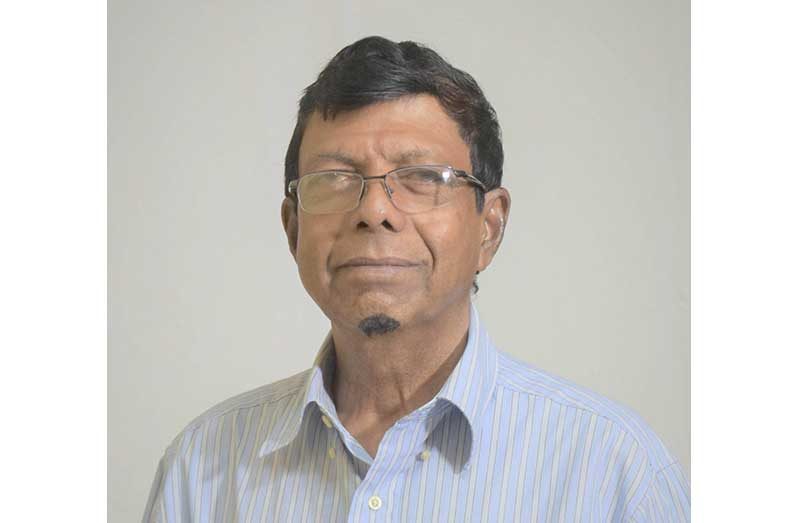–CEO Baksh announces structural & digital upgrades designed to strengthen performance, expand coverage, modernise operations
THE Guyana Water Incorporated (GWI) is undertaking a wide-ranging restructuring to boost efficiency, strengthen operations, and improve customer service delivery, according to its Chief Executive Officer (CEO), Shaik Baksh.
Speaking at the commissioning of the New Cummings Lodge Water Treatment Plant over the weekend, Baksh emphasised that while the commissioning marked another milestone in the government’s investment in the water sector, GWI’s focus is now shifting to transforming how it operates internally.
He revealed that the company is already making “organisational changes” to address customer complaints and increase productivity. “We’ve already restructured some of the departments, including the operations department, to ensure a higher level of service and that water quality is delivered,” Baksh said.
He added that changes are being made across regional offices to ensure a faster response to customer issues.
“We are reorganising the organisation at the regional levels. Changes are being made there to ensure greater efficiency in operations. We are rezoning some of the regions to ensure that is done, and putting in more competent staff so that we have a faster response to customer complaints. This is to ensure that leakages in the network are dealt with. We’re very much aware of these issues, and we are moving head-on to remedy these things as we proceed,” he stated.
Baksh was frank about his dissatisfaction with some of GWI’s internal performance, stating, “I’m not happy with what is taking place—the complaints by customers and the delivery of quality service to the population as a whole. And we are initiating several changes to turn around this area and ensure we use the new technology that is available.”
According to him, the goal is to make the water utility more responsive and accountable.
Beyond structural changes, Baksh highlighted that GWI is also embracing digital transformation to modernise its systems and improve operational efficiency.
“We are seeking advice from the e-Government agency, and we’re moving very swiftly along this line. Already, we have a portal — a dashboard we developed to support the technical efforts of GWI,” he explained.
He described these digital tools as part of a larger reform agenda aligned with the government’s modernisation drive. “This is in alignment with the government’s e-Government programme,” Baksh noted.
The CEO said that GWI’s progress is being guided by a strategic plan implemented in 2020, and a new 2026–2030 strategic plan is already in development.
“We are already moving ahead with a new strategic plan to cover the period 2026 to 2030, with a transformative strategy to ensure that GWI lives up to the expectations of the government, which has embarked on a massive transformation of the country’s economy through infrastructural development and so forth…,” he told the audience.
This new plan, Baksh said, will focus on several thematic areas, including expanding access to safe water, advancing integrated water resources management, and ensuring digital readiness.
“We hope to achieve 95 per cent treated water coverage by the end of 2026 and then move on, including in the hinterland,” he said, adding that special attention will be paid to “hinterland safe water, especially the townships and the large villages.”
He also announced plans for a new wastewater treatment plant to be constructed in Georgetown, describing it as a crucial addition to the city’s infrastructure.
“For the new plan, we expect to have a wastewater treatment plant built in Georgetown, and that is part of the new plan,” Baksh stated.
Reflecting on recent achievements, he credited the government for its investment in the sector, saying, “From 2021 to 2025, a staggering sum of $65 billion has been invested into the water sector.” The result, he said, is near-universal access.
“We’re at 98.3 per cent coverage, not only on the coastline but also in the hinterland areas of Guyana, where we have moved very rapidly from four to six percent to 91 per cent coverage of water supply.”
Baksh also reported that “nearly 180 wells have been drilled and installed in both the coastline and the hinterland areas” and that over “200 kilometres of pipelines” have been laid to strengthen distribution.
Despite the significant progress, Baksh underscored that sustaining the quality of service remains a top priority. “We have to ensure that leakages in the network are dealt with. We’re very much aware of these issues,” he said.
The CEO concluded by expressing gratitude to GWI staff and reaffirming his commitment to improving the public’s experience with the utility company.
“GWI is on the move, and I want to assure the public, with the government’s support, that we will deliver a greater level of service and better quality of service to the population, both in terms of the coverage of treated water and the level of service to households,” Baksh declared.
Since taking office, the government has invested billions of dollars into GWI, funding the expansion of water access, the installation of new pipelines and wells, the upgrading of treatment facilities, and the enhancement of service delivery across both the coast and hinterland regions of the country.



.jpg)








